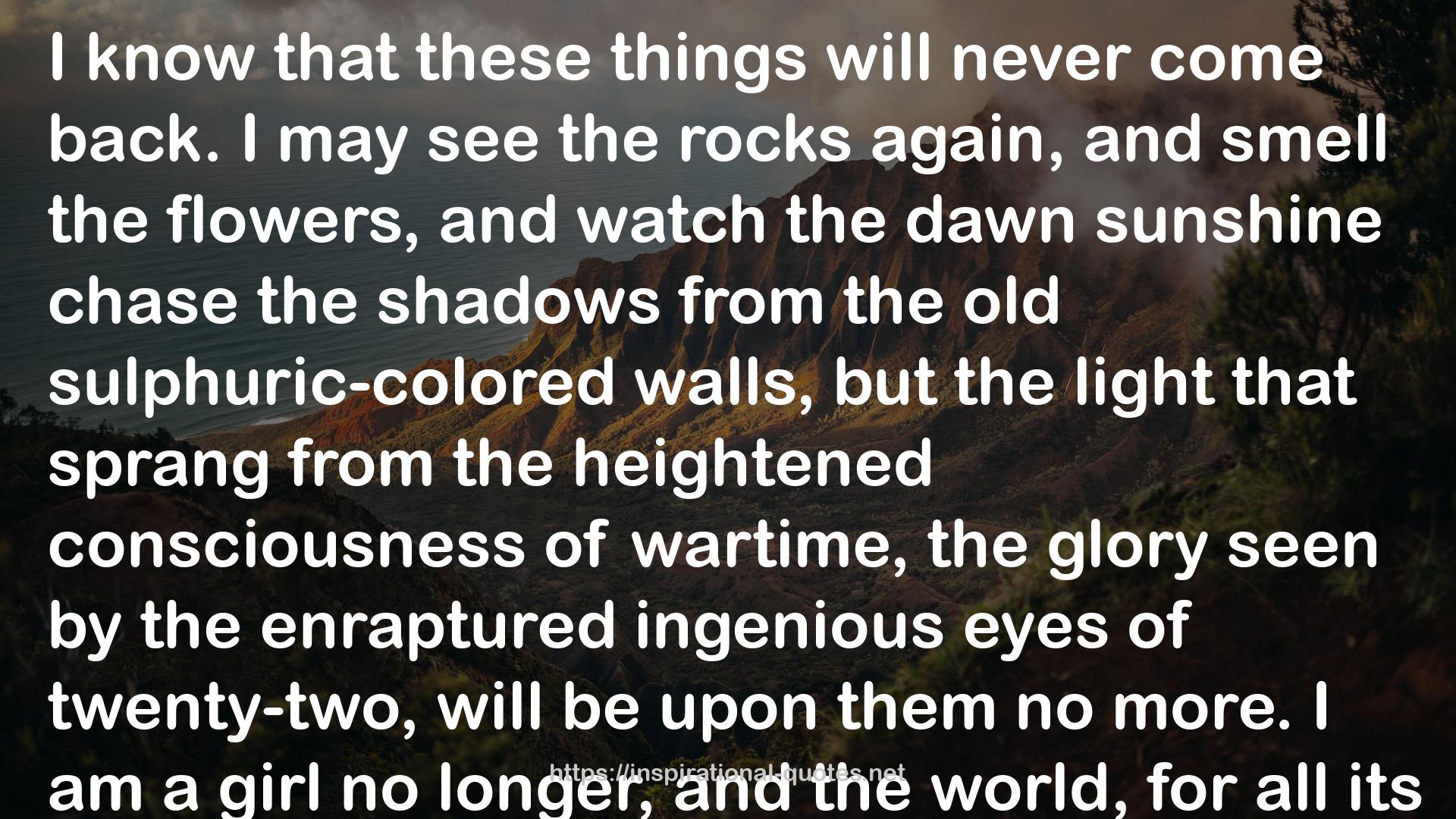" I know that these things will never come back. I may see the rocks again, and smell the flowers, and watch the dawn sunshine chase the shadows from the old sulphuric-colored walls, but the light that sprang from the heightened consciousness of wartime, the glory seen by the enraptured ingenious eyes of twenty-two, will be upon them no more. I am a girl no longer, and the world, for all its excitements of chosen work and individualistic play, has grown tame in comparison with Malta during those years of our anguish.
It is, I think, this glamour, this magic, this incomparable keying up of the spirit in a time of mortal conflict, which constitute the pacifist’s real problem — a problem still incompletely imagined, and still quite unresolved. The causes of war are always falsely represented; its honour is dishonest and its glory meretricious, but the challenge to spiritual endurance, the intense sharpening of all the senses, the vitalising consciousness of common peril for a common end, remain to allure those boys and girls who have just reached the age when love and friendship and adventure call more persistently than at any later time. The glamour may be the mere delirium of fever, which as soon as war is over dies out and shows itself for the will-o’-the-wisp that it is, but while it lasts no emotion known to man seems as yet to have quite the compelling power of this enlarged vitality. "
― Vera Brittain , Testament of Youth
